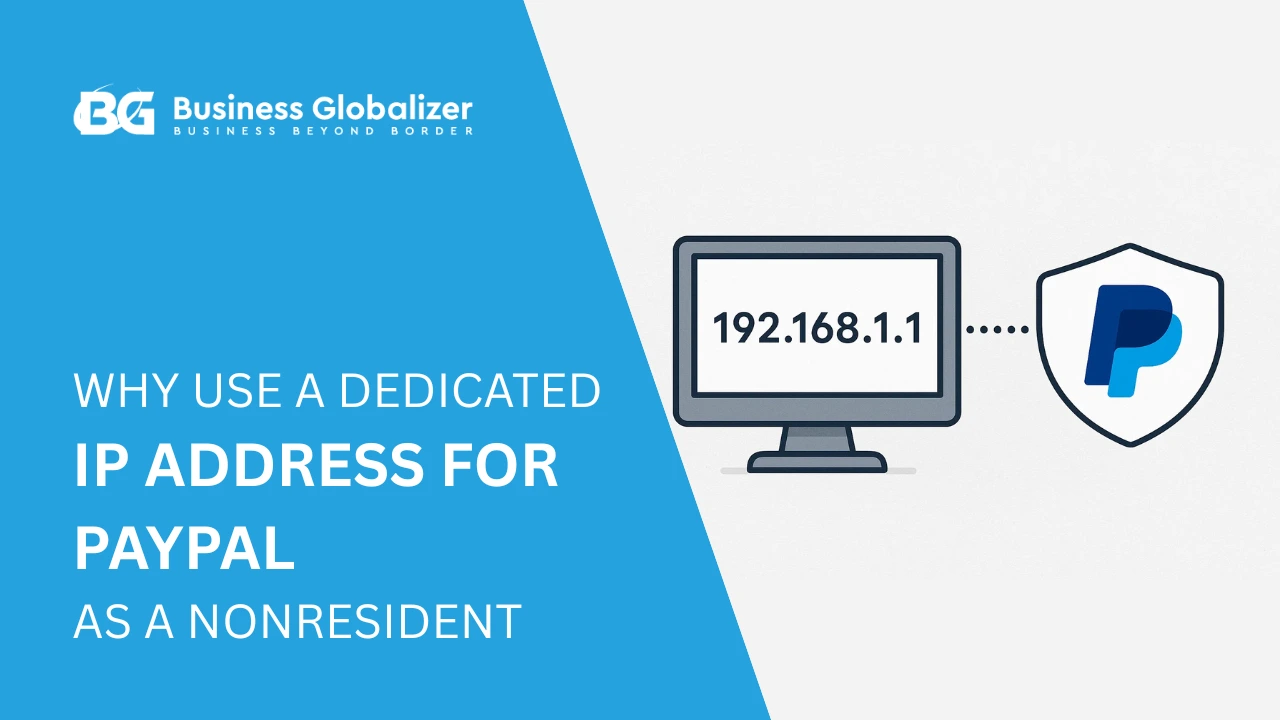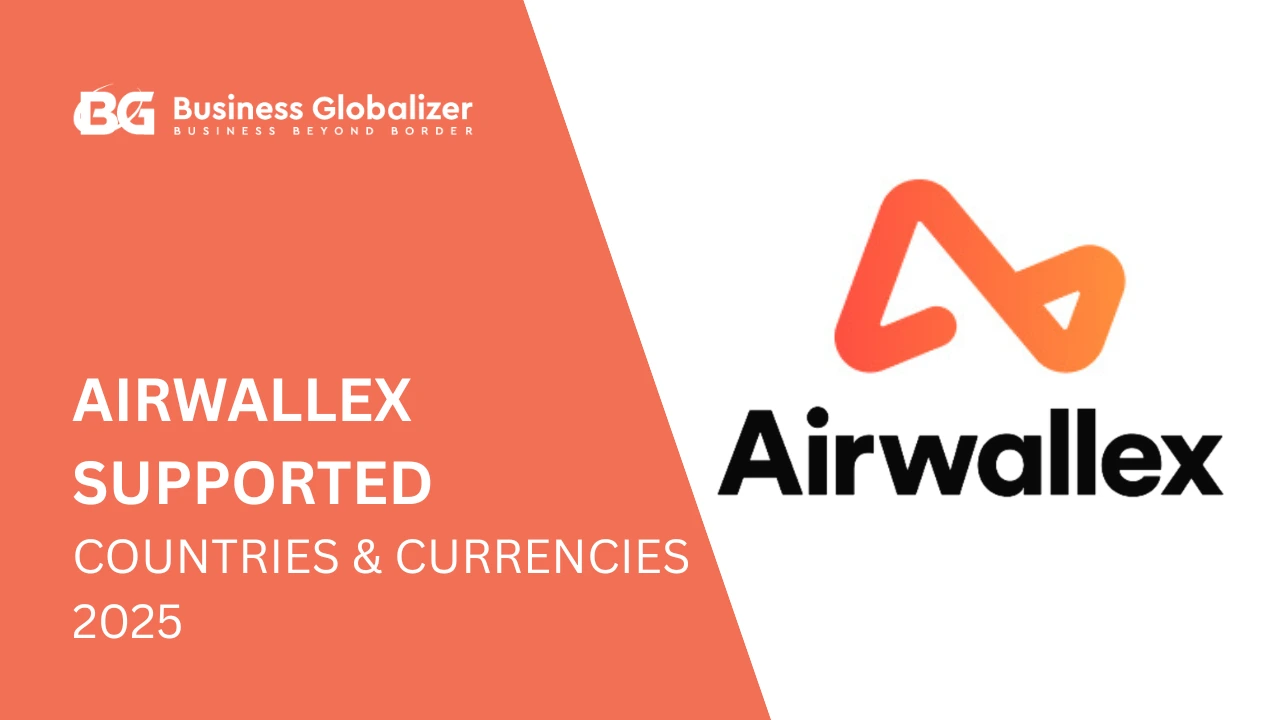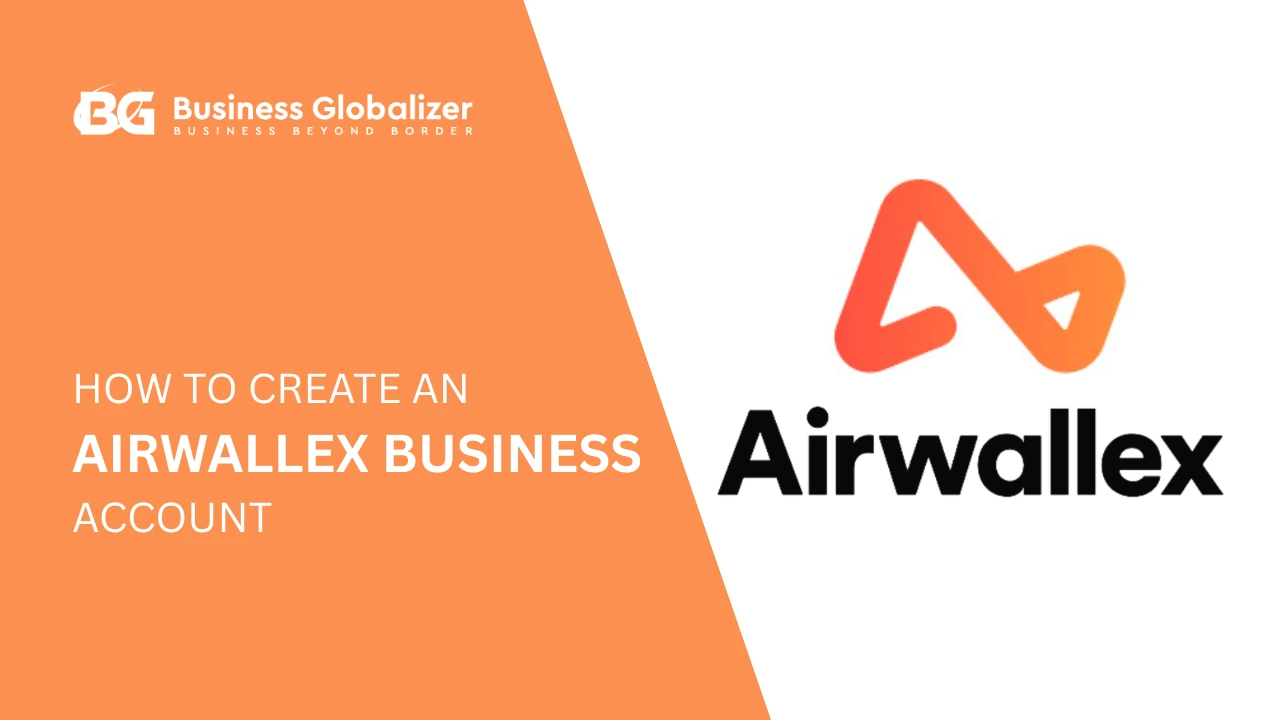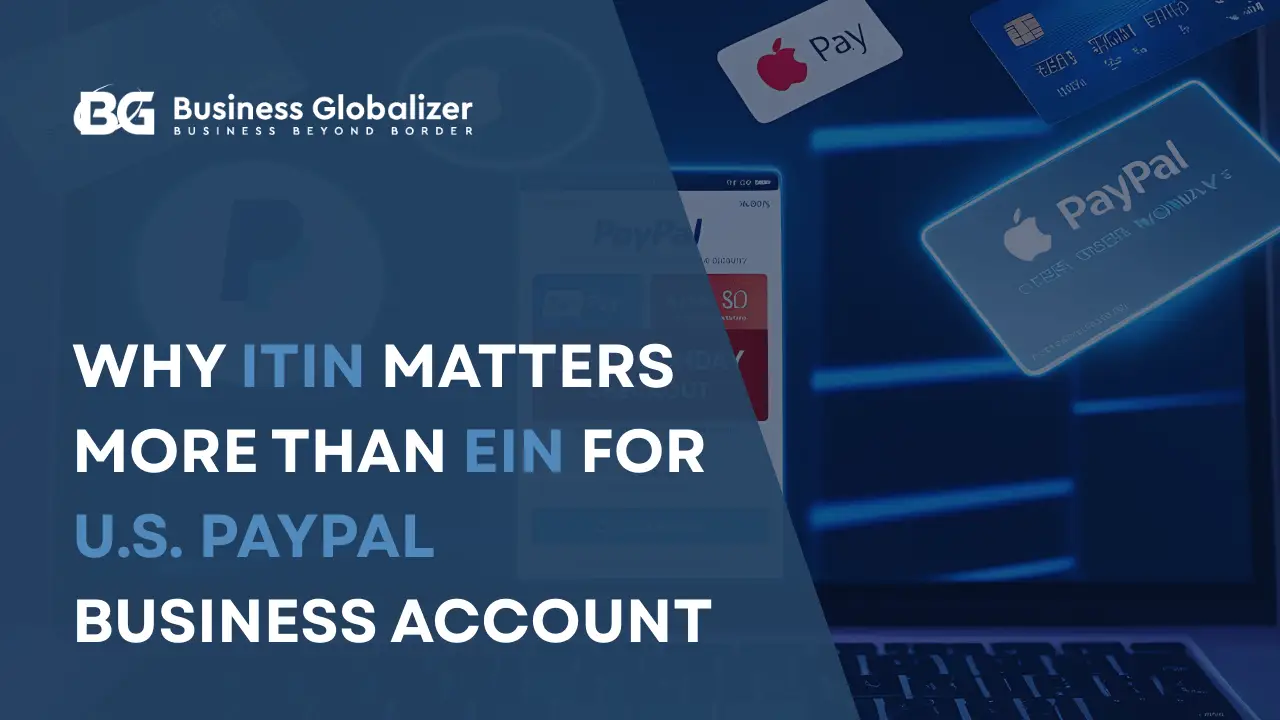Let’s cut straight to it.
If you’re a nonresident trying to open a PayPal account, your IP Address for PayPal might just be your biggest snitch. Sounds dramatic? It’s not. Because when PayPal decides to flag your activity, it almost always starts with… your IP.
So today, let’s talk about why a dedicated IP address, not a shared, rotating, or VPN-masked one, makes all the difference for PayPal. Especially when you’re operating from a country that’s not on PayPal’s “nice” list.
Wait, Quick Refresher: What’s an IP Address?
Let’s not get too techy.
Think of your IP address like your house address on the internet. It tells websites two things:
- Where you’re browsing from
- What device is knocking on their door
Without it, nothing online would know where to send anything.
Okay, here’s the part that really matters:
- IPv4 vs. IPv6?
- IPv4 is that classic short format, like 192.168.0.1.
- IPv6 is the newer, longer version that looks like it’s wearing a tux.
- Public vs. Private?
- Private stays within your local Wi-Fi world.
- Public is what the rest of the world, and PayPal, sees.
- Static vs. Dynamic?
- Static = never-changing, reliable.
- Dynamic = constantly changing, and not in a good way for PayPal.
Now, Which One Do You Need?
A static, dedicated, public IP address, rooted in a PayPal-supported country (ideally, the U.S.). Why? Because PayPal doesn’t like mystery. If your login location keeps jumping from Nigeria to Germany to New York within 24 hours, that’s a red flag.
A fixed IP tells PayPal, “Hey, it’s just me. Same business, same address, nothing shady here.” That kind of digital consistency builds trust and keeps your account from being limited.
In short: the best IP address for PayPal is a static, dedicated, residential IP based in a PayPal-supported country.
Why PayPal Flags Nonresident Accounts
Here’s the catch…
Even if you open a U.S. Business PayPal account with all the right company documents, if you log in from Bangladesh, Nigeria, or any country PayPal doesn’t currently support, you’re already walking on thin ice.
PayPal is strict with geo-behavior mismatches:
- Your account says Delaware, but your IP says Dhaka?
- One day you’re in Kuala Lumpur, the next day you’re in Cairo?
You’re already on their radar.
Your IP is one of the very first things PayPal checks. It’s part of their automated security screening. If the location doesn’t line up with your business setup, or if your IP keeps flipping between countries, their system sees it as suspicious behavior. No questions asked.
That’s why even a small inconsistency in your IP trail can lead to a red flag, a warning, or worse: a frozen account with your funds stuck inside.
Heads Up 1: PayPal Flagging Timeline Insight
The truth is, it doesn’t take much. Inconsistent IP behavior can get your account limited within hours, sometimes even before your first payment lands. That’s how sharp PayPal’s bot eyes are.
What Happens If You Don’t Use a Dedicated IP Address As a Nonresident?
Picture this: You’re logging into your PayPal account from Bangladesh, using a VPN that gives you a U.S. IP. You feel safe. But here’s the reality—
That same IP address? It’s also being used by hundreds of other people, some trying to open fake accounts, some laundering money, others getting limited left and right. PayPal doesn’t see you as an individual. It sees your IP. And if that IP has a sketchy history?
You’re guilty by association!
So, what does PayPal do?
- It flags the entire IP block.
- It ties your account to suspicious behavior.
- It throws a red flag on your access, even if your documents are 100% real.
Worse? PayPal’s algorithms are built to detect VPNs and proxy services. Once it suspects location cloaking, it doesn’t wait for you to prove innocence. It limits your account. Sometimes temporarily. Sometimes forever. No warning. No appeal that actually works.
Bottom line? Without the right IP address for PayPal—clean, stable, and dedicated—your account is walking on eggshells.
Heads Up 2: Dynamic IP Trap (Mobile Data / Wi-Fi switching)
And let’s not forget the classic mistakes: logging in from your home Wi-Fi today, your cousin’s hotspot tomorrow, and mobile data next week. These constantly changing IP traces don’t just confuse PayPal, they quietly ruin your trust score before you even notice.
Benefits of Using a Dedicated IP for PayPal
So, why go the extra mile for a dedicated IP, especially one tied to the U.S. or UK?
Here’s why choosing the right IP address for PayPal is critical if you want your account to last.
Because PayPal doesn’t just care about what you submit. It deeply watches how and where you behave. Here’s how a dedicated IP keeps your account in the clear:
- Your IP never changes.
Every time you log in, PayPal sees you popping in from the exact same spot. It’s like always entering your bank from the same door. Not suspicious, just consistent. That consistency builds trust over time.
- You’re not sharing space with strangers.
Unlike VPNs or shared proxies, dedicated IPs are yours alone. No shady neighbor logging in with the same IP and triggering red flags. You’re not guilty by association anymore.
- You appear in the right place.
If your PayPal is registered in New York, your IP better match that story. A dedicated IP based in the U.S. makes you look exactly where your business claims to be.
- Your PayPal reputation stays clean.
Yes, PayPal has something like a credit score for accounts. A mismatch in login location, IP flips, or odd behavior hurts it fast. A dedicated IP keeps your track record neat and trustworthy.
- It fits right into your compliance stack.
A solid Business PayPal account setup isn’t just about the IP; it’s the trio: U.S. company, ITIN, and IP. When those align, your account looks perfectly legal, tax-friendly, and low-risk to PayPal.
In a nutshell? Let’s be honest, PayPal’s systems are smart. But a stable, dedicated IP gives them no reason to look twice. And that’s exactly what you want.
Unsupported Country? Here’s the Real Fix..
Let’s be honest…
If you’re from a country where PayPal doesn’t operate, think Bangladesh, Pakistan, Afghanistan, or dozens of others, there’s no “clever hack” that’ll keep your account alive for long. You might get away with a VPN for a few days, maybe even a week, but PayPal’s detection system is like a hawk. The moment PayPal senses something off (like mismatched IPs or unverified entities), your account’s headed straight to the limitation zone.
So, how do you play it right?
Here’s the clean, legal, and actually long-term way to go about it:
- Form a real U.S. LLC or UK LTD
Your business needs a home, and that home has to be in a PayPal-supported country. A properly registered U.S. LLC or UK Ltd company gives you legal standing and opens the door to business tools that non-supported countries can’t access.
- Get an ITIN (Individual Taxpayer Identification Number)
PayPal may not always ask, but when it does, you don’t want to be scrambling. An ITIN connects you to the U.S. tax system. Essential if you’re not a U.S. citizen but own a U.S. business.
Combined with a reliable IP address for PayPal, these steps give you a setup that looks natural and compliant.
- Use a dedicated IP address from your company’s country
Think of it as your online passport. A U.S. IP makes sure PayPal sees your login as consistent with your business identity, not as someone bouncing between continents on shady VPNs.
- Open your PayPal Business account properly
With the above in place, you can now open and operate a PayPal business account that actually lasts. Verified, trusted, and fully functional.
Choosing the Right Dedicated IP Provider
Let’s be honest, not all dedicated IPs are made equal, and one wrong choice can quietly sabotage your PayPal account from day one.
So, if you’re going to invest in the right IP address for PayPal, here’s what truly matters:
- Is it static and residential?
You want an IP that stays fixed and mimics a real household or office connection, not a datacenter or proxy server. PayPal easily spots datacenter IPs and treats them as suspicious.
- Does it support long-term use without rotating?
Avoid providers that change your IP every few hours. You want one IP that stays the same for weeks or months, just like any real business would have.
- Can you choose the exact location?
Ideally, pick an IP from the same state where your company is registered, like Delaware, Wyoming, or Texas. This adds one more layer of trust to your PayPal logins.
- Is there a 24-hour or manual switching interval (if switching is needed)?
If you’re offered a pool of IPs, make sure you can stick to one for at least 24 hours before it changes. Random, fast switching can look like fraud to PayPal.
- Can you test and verify the IP before using it?
Use free tools like IP address lookup or geolocation checkers to confirm:
- It’s not blacklisted
- It shows the correct country and city
- It registers as a residential line, not a server farm
Also, PayPal’s system checks more than just the IP. It sees your IP class, subnet, and even the CIDR block (the wider IP range you’re in) to decide if your login looks clean or suspicious.
Heads Up 3: Free Proxy / Cracked Residential IP Warning
One last thing: skip the ‘free proxy’ shortcuts. Many of those recycled IPs are already flagged or blacklisted. You’re not saving money; you’re burning your PayPal account before it even starts breathing.
Bonus: Why You Also Need a U.S. Company & ITIN
Alright, so you’ve sorted your IP. You’re logging in like you’re sitting somewhere in Florida with an iced latte.
Even if you’ve got the cleanest IP address for PayPal, PayPal still checks your company and tax identity. They also care who you are on paper. That’s where the U.S. company and ITIN step in.
Let’s break it down:
- U.S. Company (usually an LLC)
PayPal requires a business entity based in a supported country for opening a business account. If you’re from an unsupported country (say, Bangladesh or Egypt), a U.S. LLC acts as your legal footprint. It’s like saying, “Hey PayPal, I’m a registered business in your system. Let’s work.”
- ITIN (Individual Taxpayer Identification Number)
This one often trips people up. Even if you have a U.S. LLC, PayPal might ask for tax documents or verification. Since you’re not eligible for a Social Security Number (SSN) as a nonresident, the ITIN is your official tax ID to satisfy both the IRS and PayPal.
- U.S. Business Bank Account
This is where your money goes. PayPal will want to link and verify a U.S. business bank account. And no, random fintech apps usually won’t cut it. You need the real deal: FDIC-insured, stable, and connected to your LLC.
So, even with a dedicated IP address, if you skip these? You’re building a house with no foundation. And when PayPal comes checking, and they will, your account could be limited, frozen, or worse.
Set it up right from the beginning. Business entity, tax ID, clean IP, verified bank, and you’ll thank yourself later.
Need Clarity Before Committing? Business Globalizer Has You.
If all this IP stuff still feels a little technical (because, let’s be real, it is), here’s some good news: you don’t have to guess your way through it.
At Business Globalizer, we’ve helped thousands of nonresidents legally get Business PayPal accounts the right way. Not just with a clean IP address, but with the entire setup done right from the start:
- U.S. company formation that matches your PayPal goals
- ITIN service backed by an in-house IRS Certified Acceptance Agent (CAA)
- UK company formation and full legal compliance if that route fits better
- Guidance on picking a solid dedicated IP provider that won’t raise red flags
- And yes, a free business consultation if you just need someone to walk you through the logic before you commit
A quick and last heads up: If you’ve already formed a U.S. company through a proper service (like ours), the U.S. business address you got during formation is usually the exact same one PayPal needs. No need to hunt for another or second-guess if it’s valid. You’re already covered!
We are not here to push a service on you. We are here to help you get approved, stay compliant, and avoid making rookie mistakes that could cost you the account down the line.
Final Thought
Let’s be honest…
You don’t need to be a tech genius to get PayPal right as a nonresident. But you do need to be precise. Because PayPal doesn’t flag you for being foreign, it flags you for looking risky. And that risk often starts with a messy IP trail, missing paperwork, or a setup that just doesn’t add up.
A dedicated IP address is one of those small details that make a huge difference. It’s not about “tricking” the system. It’s about aligning your online presence with your legal business identity.
So before you take the leap, take a second look at how you’re showing up. Digitally and legally. Because in the world of online payments, consistency isn’t just professional. It’s survival.
FAQ
Can I use a regular VPN instead of a dedicated IP address for PayPal?
Answer: Not if you want to sleep peacefully at night. Regular VPNs often use shared or datacenter IPs, which are easily detectable and frequently abused. PayPal can spot them a mile away, and when it does, you’re flagged. Dedicated = safer.
How do I know if my IP address for PayPal is causing issues?
Answer: Simple red flags:
- Your account was limited soon after logging in.
- You’re being asked for documents out of the blue.
- You got hit with 2FA or security challenges every time.
Take a moment to check how your IP looks to the outside world. Tools like IPQualityScore or WhatIsMyIPAddress make it easy.
What’s better: Residential IP or Datacenter IP for PayPal?
Answer: Residential IP. Always. It mimics a normal user at home or work. Datacenter IPs are usually linked to server farms and are flagged by PayPal almost instantly.
Can I use the same IP for multiple PayPal accounts?
Answer: That’s a risky game. Even if you own both accounts, PayPal doesn’t like shared access patterns. One dedicated IP per PayPal account is the cleanest and safest way to go.
Is having a U.S. company enough without a dedicated IP?
Answer: Nope. That’s like buying a car without tires. Your company gives you legitimacy on paper. Your IP proves you’re operating from where you claim. Both are essential.
Where can I get a clean, long-term, dedicated IP that works with PayPal?
Answer: You’ll want one that’s:
- Static (not rotating)
- Residential (not datacenter)
- Based in your company’s registered U.S. state
If you’re unsure where to find it, Business Globalizer can guide you through choosing a solid provider, without guesswork or trial-and-error.






